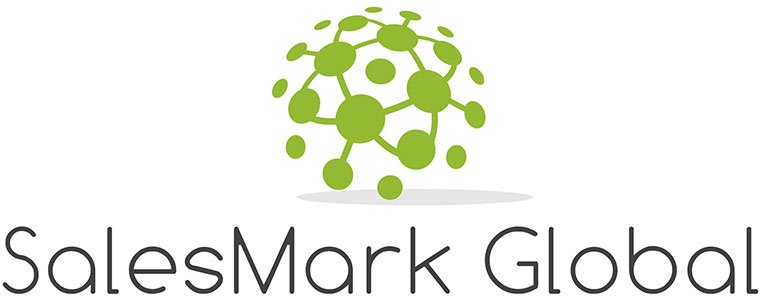ROI Showdown: Intent Data Platforms vs. Traditional Lead Generation in 2025
Explore the 2025 ROI battle: Intent Data Platforms vs. Traditional Lead Generation. Uncover which approach drives better results for modern marketers.
B2B marketing relies on generating leads, as these leads fill sales pipelines and help the business to grow. Cold calling, sending out mass emails, and taking part in trade shows are traditional ways marketers use to find new customers. Yet, since how customers buy has become more sophisticated and internet-based, intent data platforms now play a major role. They look at users’ online actions to spot those interested in what you offer, allowing you to target them more precisely. This article looks at how ROI between these two approaches differs, with intent data being a main factor in changing lead generation results.
Table of Contents
1. What is Traditional Lead Generation?
2. What are Intent Data Platforms?
3. ROI Comparison: Intent Data Platforms vs Traditional Lead Generation
4. Lead Generation Strategies in 2025
5. The Role of Intent Data in Improving Lead Generation ROI in 2025
Conclusion
1. What is Traditional Lead Generation?
Traditional lead generation is the term given to the established ways marketers attract and find new customers. To prospect, some companies use cold calling, send emails to a big group, go to trade shows, and buy lists with lead information from other companies. For decades, researchers have used these strategies to reach many businesses and gain recognition in the market.
In cold calling, the sales team gets in touch with potential customers to encourage them to go ahead with their services. Email blasts reach a wide audience with advertising messages in the hope of creating new leads. At trade shows, companies can meet and connect with people, but the possibility of contacting pre-built lists through purchase is also available.
Scalability and a reliable history are the two main advantages of traditional lead generation. Companies can target many users and create a constant supply of leads. Moreover, various businesses have developed their own knowledge and systems based on these practices.
Still, there are serious drawbacks to this technology. Traditional approaches have low success rates since many of the contacts are not interested. With the passing of time, these payments increase because the mail recipients become less engaged and more likely to unsubscribe. Using these techniques can also result in drawing poor leads, which wastes time and effort from the sales team.
In 2025 and beyond, organizations are experiencing difficulty with traditional ways of lead generation due to ROI problems. Increased costs for marketing and buyers not responding to simple sales pitches both lower the level of efficiency in the industry. Therefore, a lot of marketers are looking for effective ways to use data and target specific audiences to increase profits.
2. What are Intent Data Platforms?
With intent data platforms, marketers can spot the behavioral signals of people interested in a product. Intent data platforms use data collected from what potential buyers do online instead of sending out advertisements like traditional lead generation.
Intent data covers data collected from a prospect’s digital activities, for example, visiting websites, downloading content, searching online, and interacting on social media. Marketers use the signals to know where a prospect is in the buying cycle and how serious they are about the purchase.
You can find three types of intent data.
- First-party intent data is gathered when people visit websites and interact with a company’s CRM platforms.
- Second-party intent data: Provided to businesses so leads can be enriched.
- Intent data from third parties is gathered from various online sources and with the help of intent data providers.
Managing leads with intent data helps marketers approach interested prospects more accurately and boosts the use of resources. This means the audience stays active, and the resulting leads are better.
In 2025 and beyond, these platforms now include more AI and machine learning, allowing for immediate analysis and future insights. Integrating these tools into CRM and marketing automation features gives sales and marketing teams an advantage in acting fast and effectively.
Intent data has changed the way businesses find leads by approaching more targeted and focused on how buyers act and look for solutions.
3. ROI Comparison: Intent Data Platforms vs Traditional Lead Generation
Marketers consider ROI to be the most important metric while considering lead generation approaches. ROI in lead generation is figured by looking at how much revenue these leads bring in as compared to the entire cost of collecting them. Measuring cost per lead (CPL), conversion rates, speed of sales, and true customer value are crucial for lead generation.
Furthermore, because of their broad approach, passing on marketing material to everyone often leads to big expenses. Labor costs, the purchase of details, and participating in events can make the CPL significant. Furthermore, a small percentage of contacts convert to customers, as many are not really interested or simply unqualified. Therefore, sales take more time to complete and cost businesses more to attract new customers.
Unlike the others, intent data platforms boost lead generation by investing in leads who exhibit characteristics of an imminent purchase. By reviewing online actions like content use, search history, and how frequently users interact, the platforms find prospects that are most likely to become leads. When you target marketing more precisely, waste goes down and qualified leads rise.
Several case studies from 2025 highlight this.
- After adding intent data to its marketing process, the B2B SaaS company experienced a lower CPL by 30% and saw a 25% rise in conversions within six months.
- Using intent data, this technology vendor improved sales speed by 20%, bringing the sales cycle down from 90 days to 70 days.
- Account-based marketing (ABM) campaigns using intent data resulted in twice the amount of engagement in selected accounts compared to using just lists.
Even with these advantages, the traditional approach to lead generation is not outdated. It is still important for bringing awareness to brands and attracting many viewers. Still, its ability to generate returns declines as there is more noise in the market and buyers have higher expectations.
For the strongest outcome, use intent data platforms for personalized and prioritized approaches, yet continue with regular marketing to reach and support a large audience over time. With both approaches, workers can process as quickly as possible.
4. Lead Generation Strategies in 2025
As of 2025, lead generation strategies have responded to how buyers now act and the latest tech developments. Marketing today stresses using analytics in combination with intent data, AI, machine learning and automation to build more effective and automated campaigns.
Previously, predictive analytics and intent data were separate, but now they are often used together. Historical and current information on behaviors is used by these tools to predict the best prospects for sales staff to act on. It improves the process of qualifying leads compared to using demographic or firmographic data only.
It’s now common for successful lead generation to rely on engaging people via multiple channels. Prospects can connect with a business through email, social media, websites, video, chatbots, and events. They collect information from various channels, so marketers can tailor their campaigns based on how active prospects are in each place.
Both real-time information and automation are crucial today. Thanks to marketing automation, you can automatically send targeted messages whenever prospects behave as though they are ready to buy. When someone downloads a whitepaper or visits the pricing pages more than once, automated messages can be sent to them,m or salespeople can immediately contact them.
Still, old advertising channels are effective and often improved by adding data insights. Trade shows, webinars, and outreach are key elements in growing relationships with leads. Intent data ensures that you choose the right event participants and individualize your approach depending on the audience’s interests.
Also, 2025 regulations and guidelines expect marketers to be clear about their uses of intent data and to receive consent from buyers while offering something valuable. When this balance is present, the brand becomes trustworthy, benefiting the company’s efforts to secure leads in the long run.
Combining technology, data, and people, the lead generation process for 2025 smoothens out marketing efforts and helps companies achieve the best possible ROI.
5. The Role of Intent Data in Improving Lead Generation ROI in 2025
Through intent data platforms, companies can ensure they capitalize on their lead generation efforts by choosing the leads most likely ready to buy. In contrast to previous strategies that deal with all leads the same way, intent data lets sales and marketing target those most likely to buy.
Marketers can spend their budgets more effectively this way. Reducing spend on unqualified leads helps channels to focus on interested leads, which results in more deals and greater revenue.
Aligning sales and marketing relies heavily on intent data. With up-to-date information on prospects’ interests, marketing can hand active leads to sales teams just when the prospects are highly receptive. This close coordination allows processes to happen faster and results in more successes.
Personalized messages can be delivered to a large number of people. Because of intent data, marketers have more opportunities to adjust offers, email messages and advertising to fit each person’s unique needs. When you use personalization, customers engage more and develop trust in your business, leading to a better ROI.
Furthermore, intent data platforms make it possible for companies to react swiftly to happenings in the market. When the interests of buyers change for any reason, marketers are able to quickly modify their campaigns and sales strategies to address these opportunities.
With digital noise on the rise, companies will need intent data more than ever to stand out and capture leads effectively. If intent data is used well, businesses have better leads, deal closures happen more swiftly, and they are more competitive, resulting in better lead generation returns.
Conclusion
Intent data platforms help to produce better ROI than traditional lead generation, which is achieved by using stronger personalization, targeting, and better matching of sales efforts. Even though traditional techniques work, using intent data is necessary for companies to continually grow in today’s competitive market. As AI becomes more advanced and privacy-friendly data sharing is made easier, lead generation strategies will be further perfected by using intent data in the future.
Visit Our SalesMarkBlog Section to Uncover the Sales Strategies That Ignite Your Sales Journey!











